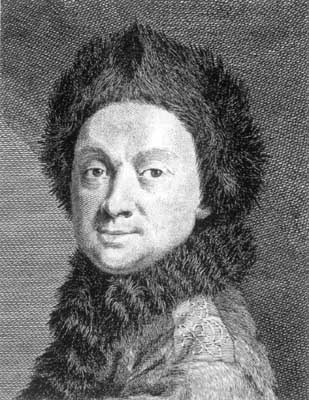Les Loix du Mouvement et du Repos, déduites d'un Principe Métaphysique (1746)
Pierre Louis Moreau de Maupertuis: Citations en anglais
Les Loix du Mouvement et du Repos, déduites d'un Principe Métaphysique (1746)
Les Oeuvres De Mr. De Maupertuis (1752) vol. iv p. 22; as quoted by Philip Edward Bertrand Jourdain, The Principle of Least Action (1913) p. 6.
Accord de différentes loix de la nature qui avoient jusqu’ici paru incompatibles (1744)
Les Loix du Mouvement et du Repos, déduites d'un Principe Métaphysique (1746)
Les Loix du Mouvement et du Repos, déduites d'un Principe Métaphysique (1746)
Accord de différentes loix de la nature qui avoient jusqu’ici paru incompatibles (1744)
Les Loix du Mouvement et du Repos, déduites d'un Principe Métaphysique (1746)
Les Loix du Mouvement et du Repos, déduites d'un Principe Métaphysique (1746)
Les Loix du Mouvement et du Repos, déduites d'un Principe Métaphysique (1746)
Les Loix du Mouvement et du Repos, déduites d'un Principe Métaphysique (1746)
Accord de différentes loix de la nature qui avoient jusqu’ici paru incompatibles (1744)
Histoire de l'Academie (1744) p. 423; Les Oeuvres De Mr. De Maupertuis (1752) vol. iv p. 17; as quoted by Philip Edward Bertrand Jourdain, The Principle of Least Action https://books.google.com/books?id=y3UVAQAAIAAJ (1913) p. 5.
Accord de différentes loix de la nature qui avoient jusqu’ici paru incompatibles (1744)
Les Loix du Mouvement et du Repos, déduites d'un Principe Métaphysique (1746)
Les Loix du Mouvement et du Repos, déduites d'un Principe Métaphysique (1746)
Accord de différentes loix de la nature qui avoient jusqu’ici paru incompatibles (1744)
Accord de différentes loix de la nature qui avoient jusqu’ici paru incompatibles (1744)
“Nature always uses the simplest means to accomplish its effects.”
Formulation of the principle of least action, as stated in Mémoires de l'académie royale des sciences (Accord between different laws of Nature that seemed incompatible), 1748, 417-426 (15 April 1744).
Les Loix du Mouvement et du Repos, déduites d'un Principe Métaphysique (1746)
Accord de différentes loix de la nature qui avoient jusqu’ici paru incompatibles (1744)
Les Loix du Mouvement et du Repos, déduites d'un Principe Métaphysique (1746)
Accord de différentes loix de la nature qui avoient jusqu’ici paru incompatibles (1744)
Les Loix du Mouvement et du Repos, déduites d'un Principe Métaphysique (1746)
